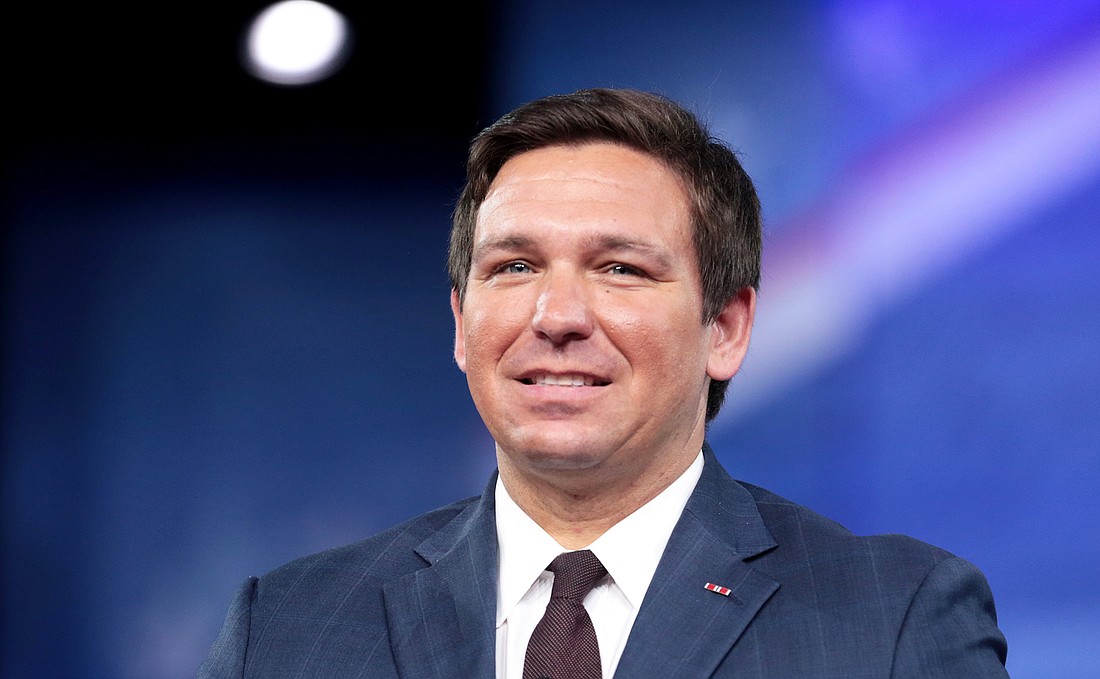
At his Tuesday night acceptance speech at a rally in Orlando, Governor-elect Ron DeSantis had a clear message for the corporate community.
“Florida is open for business,” he said.
At press time, the former U.S. representative was winning by a slim margin, which likely ensures the two-decade run of Republican rule in Florida will continue for another four years.
DeSantis, 40, of Ponte Vedra Beach, defeated Democrat and Tallahassee Mayor Andrew Gillum, who conceded Tuesday night. South Florida counties continue to count ballots.
DeSantis did not win Duval County, falling 16,468 votes behind Gillum.
Before stepping down from the U.S. House to pursue the governor’s race in September, DeSantis represented Florida’s 6th Congressional District which begins south of St. Augustine and runs through Daytona, almost to Orlando.
He won the support of JAXBIZ, the nonpartisan political organization affiliated with the JAX Chamber, the Florida Chamber of Commerce, Jacksonville Mayor Lenny Curry and President Donald Trump.
DeSantis is opposed to tax increases, saying he’ll veto any legislation that does so. He says he’ll phase out the business rent tax, reduce the communication services tax on cable and telecommunication services, review all fees levied by the state and reduce the corporate income tax.
According to his campaign website, DeSantis states he’ll “reduce regulatory burdens on small businesses,” and “create a business-friendly environment to expand opportunity for Floridians.”
Josh Gellers, an associate professor in the Department of Political Science and Administration at the University of North Florida said DeSantis will likely approach economic policy like his predecessor, Rick Scott.
“Obviously, there’s going to be a priority to reduce the tax burden for businesses,” Gellers said.
DeSantis emerged as the Republican nominee after defeating Florida Agriculture Commissioner Adam Putnam in the primary election in August.
Since then, he only recently provided specific policy stances on his website and during media availabilities.
“Some of the policies that he has been working on crafting haven’t been well-articulated or released until recently, so the public hasn’t had a genuine opportunity to look over what his plan is,” Gellers said. “His strategy was based on attacking his opponent’s policies rather than providing details of his own.”
Rick Mullaney, director of Jacksonville University’s Public Policy Institute, said he believes the governor-elect’s economic policies would likely mirror that of Scott.
Like Gellers, Mullaney said there’s still a lot we don’t know.
“I don’t know where he is in terms of using incentives to bring companies here,” said Mullaney. “Gov. Scott was particularly aggressive with Enterprise Florida (Inc.) and Visit Florida (Inc.),” he said. “We’re not sure if he wants to fund those agencies like Scott did.”
Mullaney said DeSantis is more conservative than Scott, which could impact economic policies.
He said he believes DeSantis will likely have more sway with the federal government because of his relationship with Trump, which could mean more federal funding for areas like transportation.
“Overall, we’re going to have a Republican in office who supports economic development and one business leaders will get behind.”